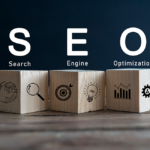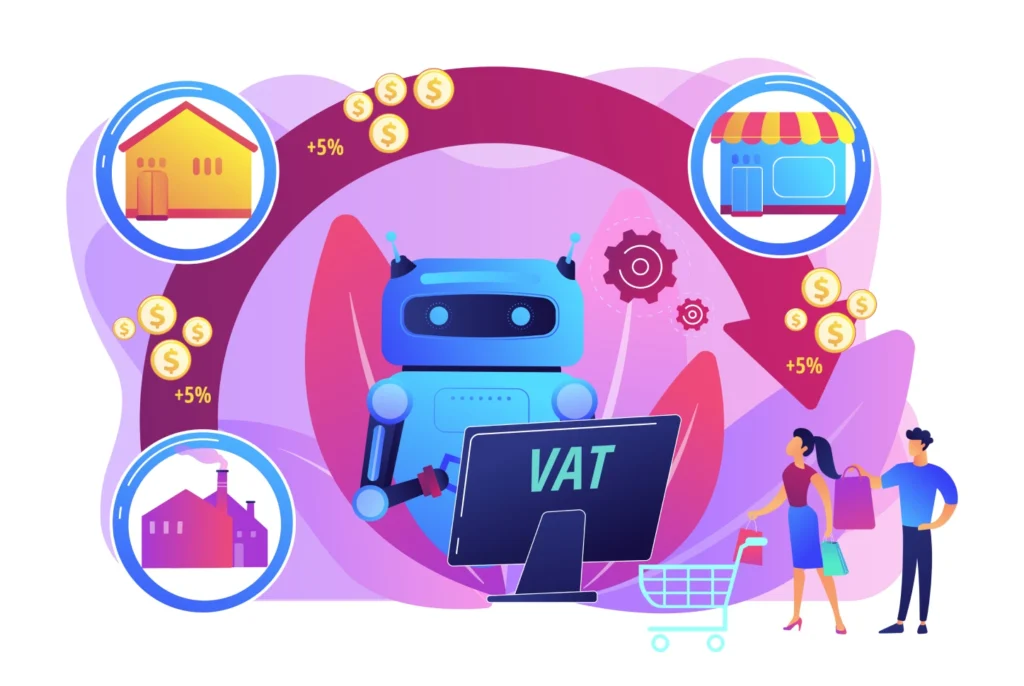The Role of AI in Market Segmentation - Targeting the Right Audience
In today’s digital age, businesses are constantly seeking ways to effectively reach their target audience. Market segmentation is a critical strategy in this process, enabling companies to divide their broad audience into more manageable, targeted groups.
Traditional methods of market segmentation, however, often fall short in precision and efficiency. This is where Artificial Intelligence (AI) steps in, revolutionizing the way businesses understand and engage with their customers.
So, lets learn the role of AI in digital marketing and market segmentation and how it helps digital marketing agency usa and businesses target the right audience.
Understanding Market Segmentation
Market segmentation is the process of breaking down a large consumer or company market into smaller consumer groups based on shared attributes. These groups often comprise both current and potential customers. There are mainly four forms of market segmentation:
Demographic Segmentation
Based on age, gender, income, education, etc.
Geographic Segmentation
Based on location such as country, city, or neighborhood.
Psychographic Segmentation
Based on lifestyle, values, interests, and attitudes.
Behavioral Segmentation
Based on behavior, usage, and decision-making patterns.
Traditionally, these segmentation strategies depend on manual data analysis and can be quite time-consuming. They also often lack the depth and accuracy required to effectively tailor marketing efforts.
How AI Enhances Market Segmentation
AI brings a new level of precision and efficiency to market segmentation. Want to know how? :
Data Analysis and Processing
AI is far faster and more accurate than humans in processing large volumes of data. It can analyze data from various sources such as social media, customer transactions, and online behavior.
This ability to handle big data allows for a more detailed and comprehensive understanding of different market segments.
Identifying Hidden Patterns
One of AI’s strengths is its ability to identify hidden patterns in data that may not be visible through traditional analysis. Machine learning algorithms can uncover correlations and consumer trends that provide deeper insights into customer behavior and preferences.
Dynamic Segmentation
Unlike static traditional segmentation, AI enables dynamic segmentation. This means segments can be continuously updated based on real-time data.
AI modifies the segments in accordance with shifts in consumer behavior and market dynamics, guaranteeing that marketing tactics stay current and efficient.
Predictive Analytics
Because AI is predictive, organizations may anticipate future trends and behaviors. By analyzing past and current data, AI can predict what customers are likely to do next.
This helps businesses to anticipate needs and tailor their marketing efforts to meet those needs proactively.
Personalization
Personalization is a key aspect of effective marketing. AI enables a high level of personalization by creating highly specific segments. It can tailor messages and offers to individual preferences and behaviors, resulting in a more engaging and effective marketing campaign.
Practical Applications of AI in Market Segmentation
Customer Insights
AI-driven tools like customer data platforms (CDPs) gather and analyze data to provide deep customer insights. These insights help businesses understand what drives customer behavior and how to best segment their audience for targeted marketing.
Content Customization
With AI, businesses can customize content to suit different segments. For example, an e-commerce site might use AI to recommend products based on a user’s past purchases and browsing history, creating a personalized shopping experience.

Campaign Optimization
AI can optimize marketing campaigns by identifying the most effective channels and messages for each segment. This ensures that marketing efforts are not only targeted but also cost-effective, maximizing ROI.
Stir Prediction
By analyzing customer behavior patterns, AI can predict which customers are likely to churn.
Businesses can then create specific segments of at-risk customers and design targeted retention strategies to keep them engaged.
Real-World Examples
Several companies have successfully implemented AI in their market segmentation strategies:
- Netflix: Uses AI to segment its audience based on viewing habits, allowing it to recommend personalized content to its users.
- Amazon: Utilizes AI to analyze purchase history and browsing behavior, creating highly personalized shopping experiences and recommendations.
- Spotify: Employs AI to segment its users based on listening habits, helping it create personalized playlists and recommendations.
Challenges and Considerations
While AI offers numerous benefits for market segmentation, there are also challenges to consider:
- Ensuring the confidentiality and integrity of client information is critical. Businesses must adhere to data protection regulations and use AI responsibly.
- Investing heavily at first can be the case with AI technologies. But in the long run advantages outweigh the disadvantages.
- Implementing AI requires specialized skills and knowledge. Businesses may need to invest in training or hire experts to fully leverage AI capabilities.
Choose The Maddex Today!
AI is transforming market segmentation divesely and by leveraging AI, businesses can better understand their customers and target them more effectively, ultimately leading to improved marketing outcomes and customer satisfaction. Businesses looking to maintain their competitiveness in the digital landscape must embrace the use of AI in market segmentation, as it is more than simply a trend.So are you ready to take your marketing to the next level with AI-driven strategies? Contact The Maddex, your trusted marketing agency, to harness the power of AI in market segmentation and target the right audience with precision and efficiency. Let us help you create personalized, impactful marketing campaigns that drive results. Visit The Maddex today and start your journey towards smarter marketing!
Share
Recent Posts
-
 21 Oct 20245 Best Social Media Campaigns To Inspire You in 2025
21 Oct 20245 Best Social Media Campaigns To Inspire You in 2025 -
 21 Oct 2024How to Run Google Ads in 2024: A Step-by-Step Guide
21 Oct 2024How to Run Google Ads in 2024: A Step-by-Step Guide -
 21 Oct 202410 SEO Techniques to Boost Organic Traffic & Rankings
21 Oct 202410 SEO Techniques to Boost Organic Traffic & Rankings -
 21 Oct 2024Creative Marketing Hacks: 5 Unexpected Ways to Captivate Your Audience
21 Oct 2024Creative Marketing Hacks: 5 Unexpected Ways to Captivate Your Audience -
 27 Sep 2024Six Effective Google Ads Optimization Tips For 2024
27 Sep 2024Six Effective Google Ads Optimization Tips For 2024 -
 26 Sep 2024What is The Best Social Media Growth Strategy For 2024?
26 Sep 2024What is The Best Social Media Growth Strategy For 2024? -
 26 Sep 20247 Best SEO Strategies and Techniques to Follow in 2024
26 Sep 20247 Best SEO Strategies and Techniques to Follow in 2024 -
 26 Sep 2024How to Avoid Amazon Advertising Mistakes: A Guide for Beginners
26 Sep 2024How to Avoid Amazon Advertising Mistakes: A Guide for Beginners -
 26 Sep 2024Top 5 Innovative Marketing Campaigns in 2024
26 Sep 2024Top 5 Innovative Marketing Campaigns in 2024 -
 26 Sep 20245 Tips for Effective Content Marketing
26 Sep 20245 Tips for Effective Content Marketing -
 27 Aug 2024Uncovering The Latest SEO Strategies in 2024
27 Aug 2024Uncovering The Latest SEO Strategies in 2024 -
 27 Aug 2024Common Google Ads Problems and How to Solve Them
27 Aug 2024Common Google Ads Problems and How to Solve Them

